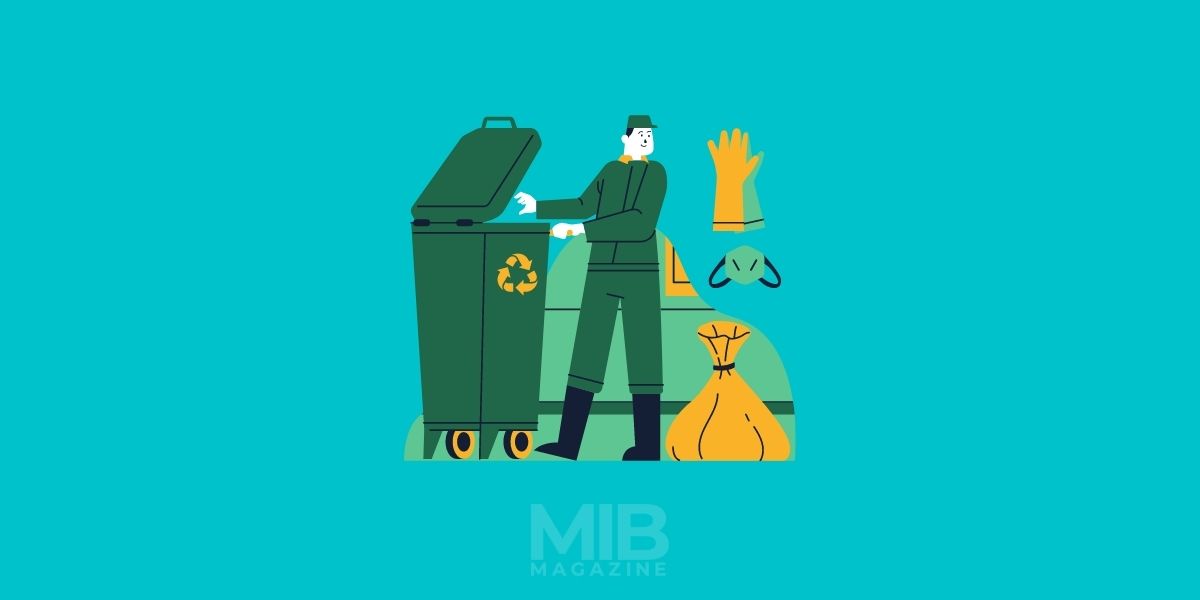Starting a Medical Waste Disposal Company – Business Plan

No one likes messy wastes, especially the doctors, nurses, and health professionals that work round the clock to save human lives. But, unfortunately, waste is a part of human activity and life in general. So for hospitals to function and not to create hazards for the rest of society, how they dispose of their waste is very important.
This is why the medical waste disposal industry has become a multi-billion dollar industry. From chemicals to needles, and sometimes human waste, it is indeed a messy but yet profitable venture to specialize in. And as of the time of writing this article, investors in medical waste management are cashing out big time.
Highly Regulated Industry
The medical waste industry is highly regulated due to the sensitive nature of wastes that the companies involved handle. Mishandling or indiscriminate dumping of such waste may create an epidemic or even a pandemic for the rest of the society. Therefore, how the wastes are treated, stored, transported, packaged, and labeled are equally very important.
So, as you may have guessed, it involves a lot of training and medical certification to handle. But rest assured that if you are equipped to run a medical waste business, you will definitely make good money from it.
Present and Future Prospect of the Medical Waste Industry
The medical waste industry is highly profitable, and the prospects for the future are even brighter. This is especially true when considering the effect of the coronavirus pandemic on society and the strain it places on public and private health infrastructure. There are conservative estimates published by Grand View Research that predict that the medical waste management industry will be worth about $33.4 billion by 2025.
Some other researchers place the US market at thrice that figure at more than $100 billion with a global industry value of more than $1.4 trillion. So as you can see, regardless of whose figure you go with, there is a huge market for medical waste disposal, so making a profit if you are properly set up with a good business plan is not a probability but an inevitability.
Types of Medical Waste
Before we show you the steps you have to take to start a medical waste business, we first need to point out the 4 types of medical wastes produced in hospitals and health facilities. They are
- Infectious
Infectious wastes are wastes that can impact the health of humans in wider society negatively. They pose threats to others, and they come in different forms like surgical gloves, animal or human tissue, swabs, stocks, bloody bandages, cultures, etc. Any waste that contains pathogens with pathological effects falls under infectious waste.
- Radioactive
Radioactive waste emanate from nuclear treatments. Common examples of this type of waste are radioactive isotopes and wastes from cancer treatment therapies involving chemotherapy and the like. Radioactive wastes pose serious health risks because they possess radiation, and so, therefore, they need to be removed by trained handlers and disposed of properly.
- Hazardous
Hazardous waste is wastes that can compromise the health of others in wider society in none infectious ways. They come in various forms like expired drugs, medical and industrial chemicals, needles, lancets, and medical equipment that can be injurious if not properly disposed of.
- General
General waste falls under any kind of waste you will generally find in homes, but they come from hospitals this time. General wastes like plastic, paper, office waste, and the likes do not fall under any particular category but are not infectious or hazardous, neither do they contain radioactive materials.
Steps to Take to Start a Medical Waste Company
Now that you know a little about the prospects of the medical waste management industry and the different types of medical wastes produced by health facilities let us now focus on the steps you can take to set up a successful waste disposal business. Please note that this list is by no means comprehensive; however, it provides you with critical steps to take to get started.
1. Know the Industry
Before you start any business, you first need to understand how the industry works. Knowing how it works will provide you with ample information when putting together a business plan. Medical waste enterprises have their activities regulated by local, state, and federal authorities, and since the industry is highly sensitive, the authorities ensure compliance and impose stiff penalties on rule-breakers. For an industry worth more than $21 billion in 2016, this is to be expected.
So, before you start your own business, know what the current industry trends are, the technologies and industry best practices involved and how all these forces intermingle.
2. Do your Feasibility Study
The best thing you need to do is a feasibility study. Doing an industry-wide feasibility study is not a bad idea, but it will be most effective if you localize your study. Do in-depth research into the handling, packaging, and transportation procedures involved. Doing a comprehensive study is vital as this will firm an essential part of your business plan, which you will have to submit when registering your business.
You also need to study the legal obligations of handling medical waste and how you intend to dispose of them. If your feasibility study is poor, you may not get the approval from the necessary authorities to operate a medical waste business. Besides, there is also the environmental aspect too. Your market research and feasibility study should cover every aspect of running a medical waste business
3. Focus on a Niche
It is true that there are businesses that handle all types of medical waste, from hazardous to infectious wastes. However, these companies have the required licenses, equipment, and trained personnel to handle such responsibilities. However, since you are just starting up, you cannot afford to be a jack of all trades. So, we recommend that you focus on a specific niche and build your business profile around the niche.
If you want to focus on infectious waste, then do so. If it is hazardous waste you want to focus on, then build capacity along that line. However, you are not restricted by law in many states based on the niches you can focus on; however, you should know that the industry is very competitive. The US has one of the most efficient waste management systems in the world.
So, make sure you have the capacity to deliver a quality service from the pickup point to the final disposal point if you want to perform against other competing businesses. Lastly, focusing on a particular niche will do two things for you. First, your business will not take up more responsibility than it can handle, and your initial investment capital will not be over bloated. Secondly, you will be able to build your brand around that niche to become a trusted business.
4. Evaluate your Competition
The medical waste industry is highly competitive. One of the ways to become successful as a new entrant is to study what your competition is doing and look for ways to do the same thing more efficiently. How you schedule waste pickups from the facility is equally as important as how you package, label, transport, and dispose of the waste. Your staff and transport vehicles are two major components of the business.
Efficiency is key across the entire value chain, so you want to make sure you are bringing something similar, if not better, to the table just like your competitors. If you cannot provide a comprehensive service from pickup to disposal, you may want to focus your resources on a limited segment of the value chain until your business is capable enough to expand. Innovation, efficiency, and speed are three ingredients of a successful medical waste disposal business.
5. Decide How you Want to Start?
Deciding how you want to start involves three things. Do you want to start from scratch, buy an existing business, or buy a franchise? All three have their unique challenges. If you start from scratch, you will have to be patient as you build your clientele. Starting from scratch is like working your way up from the bottom. It takes time. If you buy an existing business, you will have to spend more as you buy the assets and the market share of the business. How much you pay for an existing business will determine the size of the company and its client base.
The challenge with this approach is that you may not find an interested seller. Moreover, you are not only buying the assets but also the liabilities of such a business. A franchise, on the other hand, is a big name the this already known in the industry. Moreover, with a franchise, you don’t have to do much marketing as the name will speak for you. The only downside with this approach is that it will likely cost you more, and the business name can be pulled off at any time since it is not yours.
Also, most franchises come with several rules that you may find restrictive. In the end, just go for an approach that suits your long-term goals. If you can not afford to buy a franchise or an existing business, start yours from scratch and build it up, brick by brick.
6. Be Proactive
As you prepare to venture into the business of medical waste management, prepare for challenges that will come your way. Please don’t wait for them by being reactive, be proactive instead. Some of the challenges will require physical tools, while others will require a strategic response. Having a game plan in place and responding to the challenges as they occur is the only way you are going to be successful long term.
You may likely face challenges in the area of licensing since local, state, and federal authorities strictly regulate the industry, and violations may lead to closures. Having a detailed plan to address such a scenario is important. How you handle, transport, and dispose of the waste is also very important. Bear it in mind that from time to time, agencies like the Federal Environmental Protection Agency and the Department of Transportation will bear down your neck to ensure compliance on your path. How you handle the pressure is important.
7. Have Legal Representation/Legal Structure
When going into a business like this, it pays to have legal representation from the start. However, having an attorney is only a start. You also need to decide the legal structure you want for your business. Is it going to be a sole proprietorship, or are you setting it up with a partner in a joint partnership? While both options are not bad, you can also decide on a loose structure initially so you can adjust the structure as the business grows. You may also choose to incorporate the business to enjoy certain benefits like tax incentives and a corporate entity.
8. Pick a name
Another important step to take is to pick a business name for your brand. This is a decision you should not take lightly, as a good name can play an important role in building your brand from infancy. Ensure that you pick a good name that evokes a strong impression in the minds of others. The name should let the public know what your business does and that it does it efficiently. Your business name should be unique, original, and one that communicates your vision proudly.
Conclusion
Starting a medical waste disposal business involves a lot of planning and substantial investment. However, if you do a proper feasibility study and invest in the right equipment, you can build a successful business. This list is by no means exhaustive, but the steps listed above are an essential set of components required to start a medical waste disposal business. The industry is constantly growing, and with the right tools and strategy at your disposal, you can carve a niche for yourself and your brand in the ever-expanding industry.
FAQs
Medical Waste Disposal Companies typically offer a wide range of services that include disposing of bio-hazardous, infectious and regulated medical waste, as well as providing documentation and regulatory compliance.
Medical waste is disposed of as required by regulation, such as incineration or autoclaving, and/or by utilizing a licensed treatment facility.
Yes, there is a fee associated with medical waste disposal. These fees will vary depending on the type and quantity of waste, as well as the disposal method used.
Yes, medical waste disposal is regulated at the local, state and federal levels and it is important for all responsible parties to be compliant with the applicable regulations.
Yes, many Medical Waste Disposal Companies offer services for the disposal of pharmaceuticals.
Most Medical Waste Disposal Companies do not accept items such as sharps and body fluids, radioactive waste or expired medications.
It is important to do your research and select a Medical Waste Disposal Company that has proper licensing and retains necessary documentation for procedures, insurance and certification.
It depends on the size of your facility and the amount of waste you generate. Medical Waste Disposal Companies will accommodate your schedule and may offer customized pick-up schedules.
Medical waste storage typically requires containers which are specifically designed for the purpose, and constructed from materials that are resistant to leaching, corrosion and chemicals.
All personnel who will be handling medical waste must receive safety training and certification in order to be compliant with regulations. This will typically include instructions on topics such as personal protective equipment, proper waste storage and handling, and decontamination procedures.






